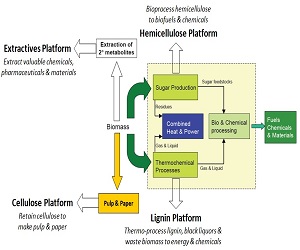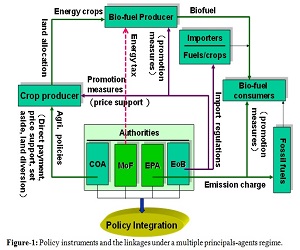Day 1 :
Keynote Forum
Lew P Christopher
Lakehead University, Canada
Keynote: Growing a high-value bioeconomy through biofuels and bioenergy production from low-value biomass waste
Time : 10:00-10:35

Biography:
Abstract:
Biorefineries are our future oil refineries where oil is inevitably replaced by lignocellulosic biomass; the most abundant and renewable resource on earth that is reproduced at 60 billion tons a year. Biorefineries are viewed as one of the major economic pillars of the emerging global bioeconomy that can advance and accelerate our transition to a bio-based society. Major drivers of the transitioning process include increasing demand for food and energy, diminished oil reserves and unstable oil prices, and increasing concerns over global climate change and greenhouse gas emissions. Currently, however, less than 10% of the total global fuels and chemicals production is derived from biomass. This is mainly due to the fact that biofuels and biochemicals are not yet cost-competitive to their petroleum-based counterparts. The current cost of lignocellulose conversion to bioenergy (US $15-$25/GJ) exceeds the cost of fossil fuels (US $3.31-$17.37/GJ). Therefore, development of an economically-viable production system would require the use of low-value biomass and waste streams that are currently generated. As the feedstock costs comprise about 50% on average of the total production costs, it has now been recognized that biomass waste can provide a cost-effective alternative to improve the economic viability of the biorefineries. Utilization of low-cost or negative-cost biomass waste has at least two major advantages over any other lignocellulosic feedstock: Opportunity to significantly lower the overall production costs of targeted bioproducts (biofuels, biochemicals or biomaterials) and opportunity to significantly reduce waste treatment costs and carbon footprint. This presentation will discuss opportunities for valorization of waste streams and underutilized byproducts generated during processing of lignocellulosic biomass. Waste streams under consideration conclude municipal solid waste, agricultural residues, bark, sawdust, primary and secondary sludge, industrial hydrolysates, etc. Potential value-added bioproducts and related technological challenges will be critically reviewed.

Networking & Refreshment Break 10:35 - 10:55 @ Foyer
Keynote Forum
Chung-Huang Huang
Taiwan Research Institute, Taiwan
Keynote: Optimal policy integration for biofuels development and carbon reduction
Time : 10:55-11:30

Biography:
Abstract:
In response to the pressure of greenhouse gas (GHG) emission reduction, the authorities in Taiwan have been initiating a number of plausible policy instruments such as set-aside program by the Council of Agriculture (COA), Renewable Energy Development Act by the Bureau of Energy (BoE), carbon fee by the Environmental Protection Administration (EPA) and energy tax by the Ministry of Finance (MoF). National development targets of such renewables as wind power, biomass, solar energy, etc., are also promulgated by BoE under the Ministry of Economic Affairs. Quite often the policy instruments could hardly harmonize with each other due to weak coordination among authorities and incomplete enforcement. Socially desirable policy integration is, therefore, urgently needed so as to achieve the development targets cost-effectively and to mitigate the impacts on the economy. Despite the supply side of biofuels, including production techniques and policy instruments, had been pervasively presented, the demand-side management is much less addressed. Transportation sector, as an example, attracts much attention because not only its GHG emission continues to grow, but also it is the major sector consuming biofuels. It appears, however, that the policy instruments applicable to the Ministry of Transportation in Taiwan is limited and weakly linked to the prevailing policy framework. This leads to a policy failure in promoting the use of biodiesel in transportation sector such that truck drivers refuse to use biodiesel and retail sellers refuse to buy in biodiesel from producers. This paper examines the farmer’s willingness to accept for the production switched from traditional crops (e.g., rice) to energy crops. The properties of equilibria in crop markets are also discussed on the basis of a general equilibrium model that involves intertemporal decisions of multiple principals and agents. Furthermore, the optimal integration of alternative policy instruments is proposed, in the hope that the overall efficiency of policy mix could be enhanced. Specific emphasis will be placed on the derivation of the consumer’s willingness to pay for biofuels in the transportation sector. Accordingly, the demand for transportation services will be integrated into a general equilibrium framework, represented, to address the optimal policy mix with multiple principals and agents. It is expected that the findings could deliver constructive policy recommendations to the authorities and make profound contribution to the literature.

